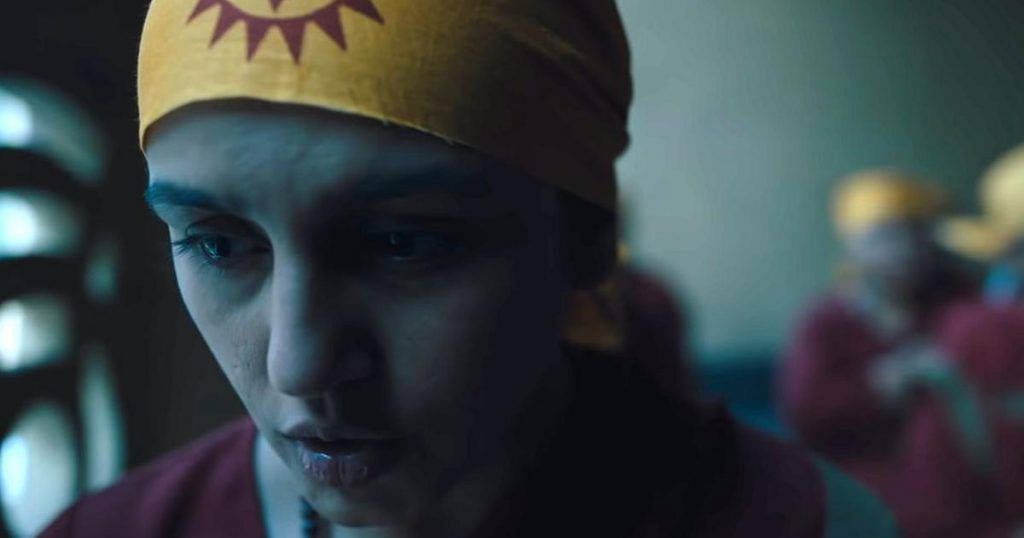In the upcoming Netflix series Leila, by Deepa Mehta, there is a new authoritarian world named Aryavarta, where everyone has to live for Aryavarta, die for Aryavarta and work hard for Aryavarta.
As soon as the trailer for Leila dropped, there were predictable threats of cancelling Netflix’s subscription for platforming “anti-Hindu content”. The outcry was led by newborn Hindutva warrior, sometime actor Koena Mitra.
“Leila is about awareness, about paying attention, about looking at the world around us and asking pertinent questions about our future,” said Deepa Mehta, creative executive producer and co-director of the Netflix series. But that can only happen when the ambient noise doesn’t make rational thought impossible.
Leila presents an imagined dystopia where climate change is real and water scarcity is an everyday dread, where a new authoritarian regime wants everyone to live on their own and follow their own rules, within sectors and behind walls, guarded by the thuggish Repeaters.
As Joshiji, the emerging new leader, says: “We are very close now to making our land pure, ourselves pure, pure as the land of the ancients. Soon we will be mentally, emotionally, culturally restored. Soon we will reclaim our rightful place at the top of the world.” He goes on: “Our purity has been perverted over the centuries. Centuries of rule by outsiders have led to spiritual subjugation.”
Also read: Ayodhya, ghar wapsi, gau raksha: How BJP, RSS & affiliates used Kumbh Mela to push Hindutva
The way to do this is to control the blood, follow the rules. And who is the repository of that blood but the woman.
Based on the book by Prayaag Akbar, Leila is the story of a woman’s struggle for freedom. The series may well have changes from the book, but the spirit of Akbar’s fiction is feminist.
As Margaret Atwood writes in The Handmaid’s Tale, “Whatever is silenced will clamour to be heard, though silently.”
And Deepa Mehta in particular is an old hand at fielding this kind of ill-advised and ill-informed hatred that chooses to silence freedom. Hindu extremists used violence and threats to halt the production of her Oscar-nominated film Water in 2000, forcing her to reshoot the film in Sri Lanka with a fresh cast in 2005. At that point, Mehta had said: ”I am a victim. The script was cleared by the federal government and even local religious leaders.” The report goes on to quote her denying the film is anti-Hindu, saying it revolves around a young widow who seeks to lead a normal life.
Before that, in 1998, Mehta’s Fire had got Shiv Sena hot under the collar for its portrayal of lesbian love between two sisters in law. At that point, then Maharashtra Chief Minister Manohar Joshi had said the film was “alien to our culture”.
Also read: Thackeray the film is as confused as Shiv Sena today
The fact of fiction
In Akbar’s fictional world, all manner of extremism is condemned, Hindu as well as Muslim. East End, where our heroine Shalini lives with her Muslim husband Riz, is the last bastion where some amount of liberty is allowed — it is also where politicians, judges, bureaucrats and the media persons live. But not for long, and as the novel begins, their child Leila is taken away from them so she doesn’t become “impure”. This urge for purity spreads to all faiths in this new dystopia, whether it is a Muslim man who insists his wife wear a burqa or a Bohra Muslim woman who is imprisoned because she actively worked against female genital mutilation.
Leila is the story of Shalini’s 16-year-long search for Leila, as much as it is about the community of women who are outcast because they dared to live by their own rules — “there was a Muslim girl who had run away with a Yadav boy, a Yadav girl who had run away with a Dalit boy, a Thevar girl who had fallen in love with a Dalit boy from her college”. It’s a society without love and liberty. As Shalini’s old friend Dipanita tells her: Those fancy ideas we had as children, of love and pleasure, adventure, those are bad words now.”
In the new world of Aryavarta, people who have read Salman Rushdie’s Two Years Eight Months and Twenty-Eight Nights will recognise echoes of the national machine that employs hardworking people and produces only glory. Just as in Leila, where duty is destiny and purity is law.
The author is a senior journalist. Views are personal.
